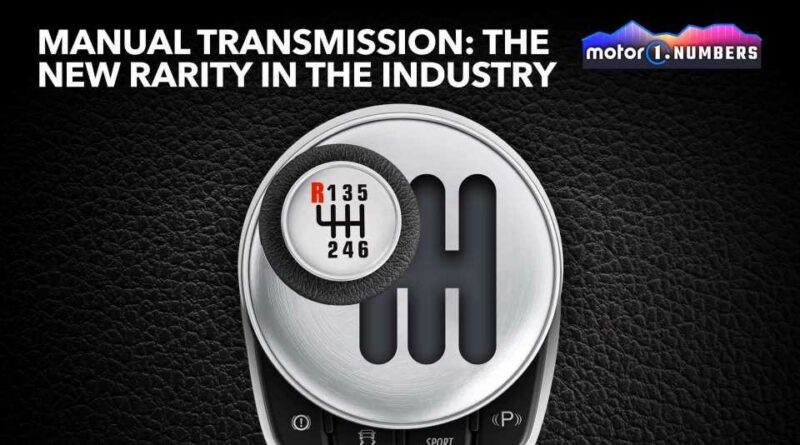Manual Transmissions: The New Rarity In The Industry Around The World
Rapid evolution within the automotive industry is simultaneously a nursery for new technology and a graveyard for obsolete equipment. Case in point: as we await the arrival of true self-driving cars with advanced systems, other features that were once standard are gradually disappearing.
Such is the case with the manual gearbox. This multi-speed transmission system, in which shifting requires the driver to manually select gears, is becoming a rarity in many markets. And it’s not just North America, where automatic transmissions have long dominated the motoring landscape. Information from JATO Dynamics shows that this type of transmission is losing popularity everywhere.
Two-Pedal Europe
Europe is a great example of this transition. In 2000, almost all new cars registered were equipped with a manual transmission. Specifically, the percentage was 89 percent and some countries such as Italy, France, Spain, Greece, Hungary, Ireland, and Portugal exceeded 95 percent. Norway and Switzerland were exceptions, where approximately 25 percent of new cars were automatics.
This percentage remained high for a few years until different types of automatic transmissions reached the market. In 2017, the overall manual take rate had fallen to 78 percent of new cars, and it’s plunged since then. In 2022 it was down to 34 percent, and through the first half of this year, we’re sitting at 32 percent.
There are several reasons for this. Drivers are more aware of the advantages and ease of operation of an automatic. Traffic jams are getting worse in many cities. And the price gap between manuals and automatics is shrinking. The influx of EVs, led globally by Tesla, certainly adds to this. These vehicles don’t need transmissions with multiple gears to use power from torque-happy electric motors, be it automatic or manual.
Auto In North America
JATO data shows that in the year 2010, only 6 percent of new light-duty vehicles sold in the United States featured a manual transmission. This percentage dropped to 4 percent in 2019, then 2 percent in 2020. For the last two years, the manual gearbox has barely registered in the US market with take rates of just 1 percent. And this year it’s even less, showing just 0.9 percent through the first half of 2023.
Not Dead Yet
On the other hand, cars with manual transmissions remain a valid choice for buyers in emerging economies. Markets such as Latin America or South Africa still see a sizable portion of new vehicles registered with row-your-own gearboxes, accounting for more than 30 percent of sales. Although the price gap between manuals and automatics has decreased dramatically over the past 20 years, it is still an important aspect to consider among low-income consumers.
Will the eventual arrival of affordable electric cars change the situation? Seeing the significant drop in manual-equipped cars in China – where lower-priced EVs are gaining popularity – certainly paints a bleak picture for those who enjoy three-pedal driving.
The author of the article, Felipe Munoz, is an Automotive Industry Specialist at JATO Dynamics.
Source: Read Full Article



